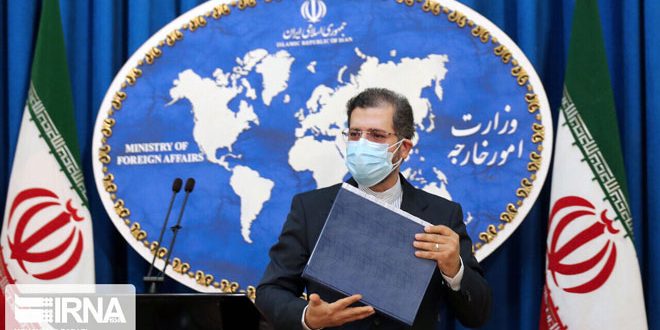The Iranian foreign ministry dismissed a resolution approved in the 46th meeting of the UN Human Rights Council (UNHRC) against the country, saying that it lacks international consensus and acceptance.
Iranian Foreign Ministry Spokesman Saeed Khatibzadeh rejected the resolution on human rights situation in Iran, stressing that countries that violate rights of other nations cannot sit in position of claimant in this field.
He stated that this resolution was approved by voting and is the result of dissenting, weak votes and lacks international consensus and acceptance.
A number of European countries have been the main factor in the adoption of this resolution and have voted for it, Khatibzadeh added.
In this resolution, the agenda of the Special Rapporteur, whose reports do not mention the death of tens of innocent children and hundreds of innocent patients due to the difficulty of access to medicine and medical equipment as well as clear violation of the “right to life” and “right to access treatment” of thousands of Iranian citizens that does not matter to him, has been extended, he said.
As it has been repeatedly emphasized, the appointment of a Special Rapporteur on human rights for a country like Iran is fundamentally “unjustified and unconstructive”, a country that, despite the oppressive pressures of US economic terrorism, has always lived up to its commitments to its citizens and the international community, Khatibzadeh said.
Supporters of this resolution should primarily condemn the actions of the US government due to economic terrorism and escalation of unilateral and oppressive sanctions and their destructive effects on Iranians’ access to basic necessities such as medical equipment and items in the fight against the novel coronavirus, COVID-19, he added.
Argentina, Austria, the Bahamas, Bahrain, Bulgaria, the Czech Republic, Denmark, Austria, Fiji, France, Germany, Italy, Japan, Malawi, the Marshall Islands, Mexico, the Netherlands, Poland, South Korea, Ukraine and the United Kingdom voted in favor of the resolution while Armenia, Bangladesh, Bolivia, China, Cuba, India, Indonesia, Pakistan, Philippines, Russia, Uzbekistan and Venezuela gave no votes and Brazil, Burkina Faso, Cameroon, Ivory Coast, Gabon, Libya, Mauritania, Namibia, Somalia, Nepal, Sudan, Togo and Uruguay abstained.
Source :







